We can’t get a degree in SEO. Anyone can call themselves an SEO and anyone can tell the stories they want which can lead to problems with misinformation. Especially vulnerable are the companies and newbies who are passionate to implement SEO because, due to lack of knowledge they’ll believe everything.
Companies like HubSpot or well-known people like Neil Patel, recommend writing blogs (especially long ones), in order to improve organic traffic on Google. Neil Patel, self-proclaimed SEO, is proud to have written 4,294 articles.
One of his popular articles is called „How to Make Every Blog Article You Write Rank High in Google Search“, and he goes on to suggest that Google loves him because he won traffic through the last Google Core Update (Medic Update).
Importantly, it’s not that Google is rewarding him by the Medic Update, he redirected his domain „kissmetrics.com” to „neilpatel.com” three weeks before the update and this is the only reason for his rankings increase:
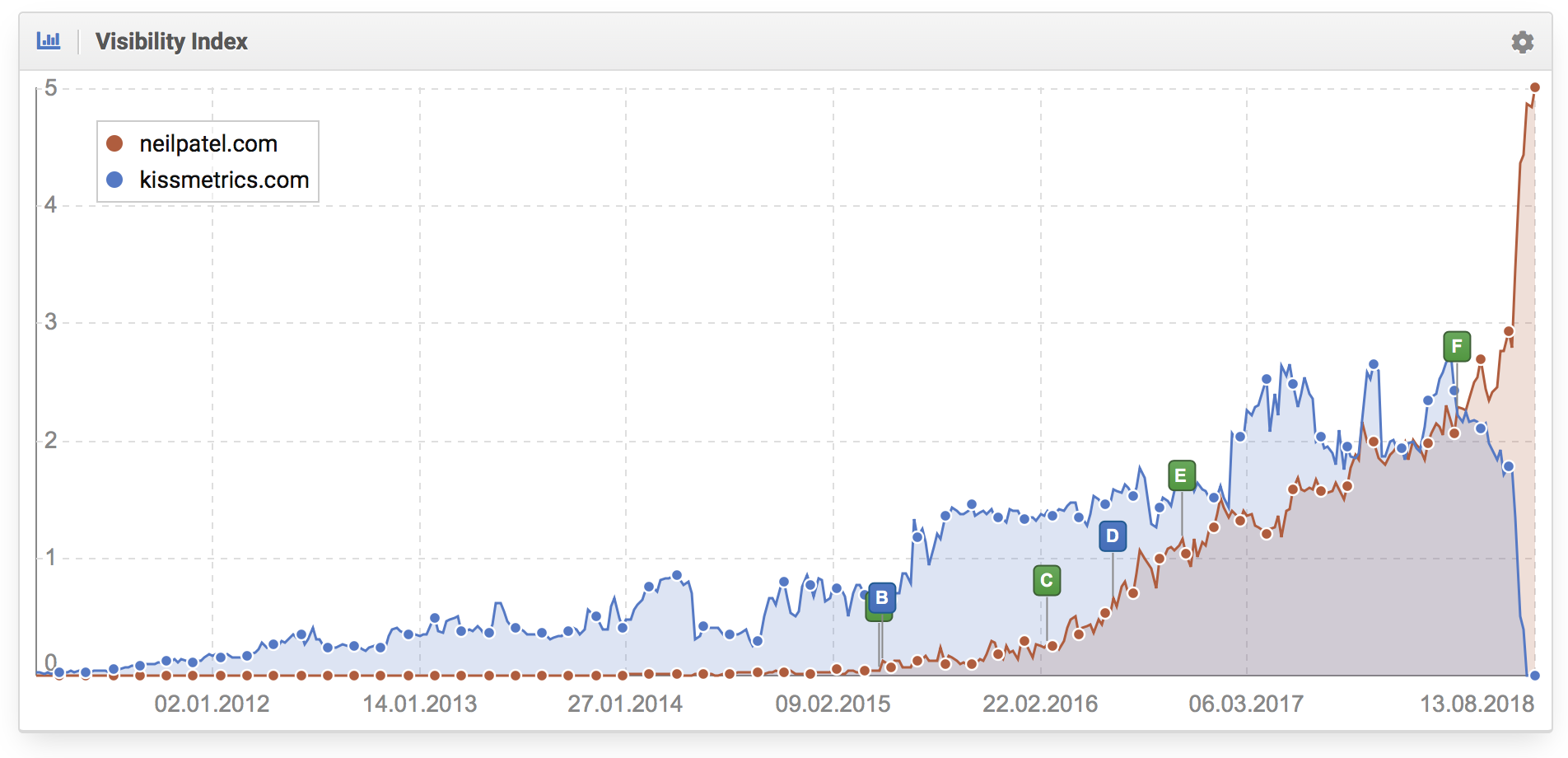
How is Neil Patel’s blog really performing on Google?
Only 9.75% of all his keyword-rankings are on the first page of Google’s results:
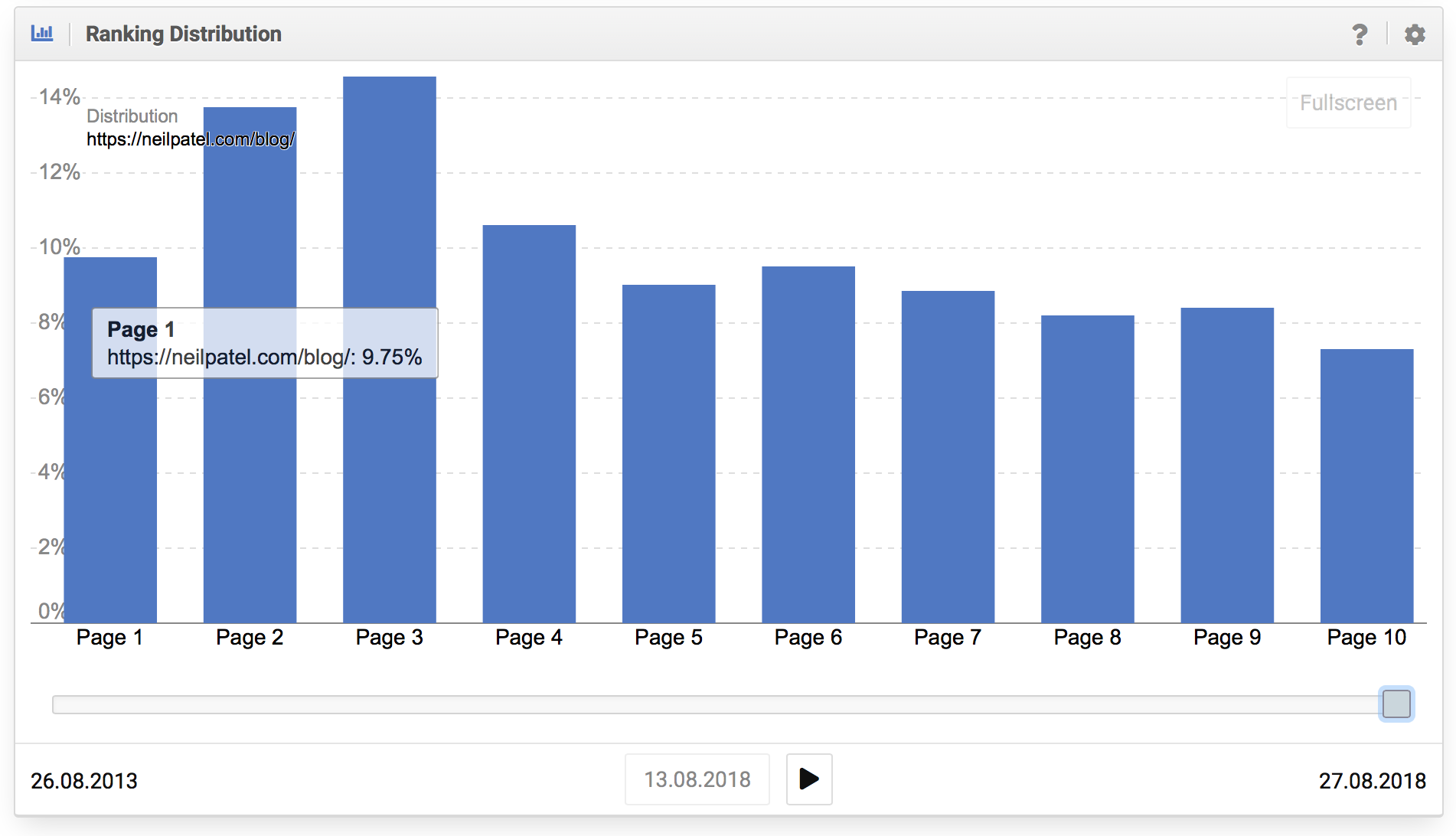
If we consider that 99% of all organic clicks occur on positions 1-10 (in other words on Google’s first page), it’s very likely that almost the entire content of Neil Patels blog (90.25%) does not generate organic traffic from Google, which is exactly the opposite of what you want to achieve through SEO.
Hubspot’s blog has a much better ranking distribution, however 81,63% of all keywords are ranking exactly where The Godfather, Don Vito Corleone, used to hide his enemies. Where it can’t be seen; In this case, on Google’s 2nd page search results and beyond.
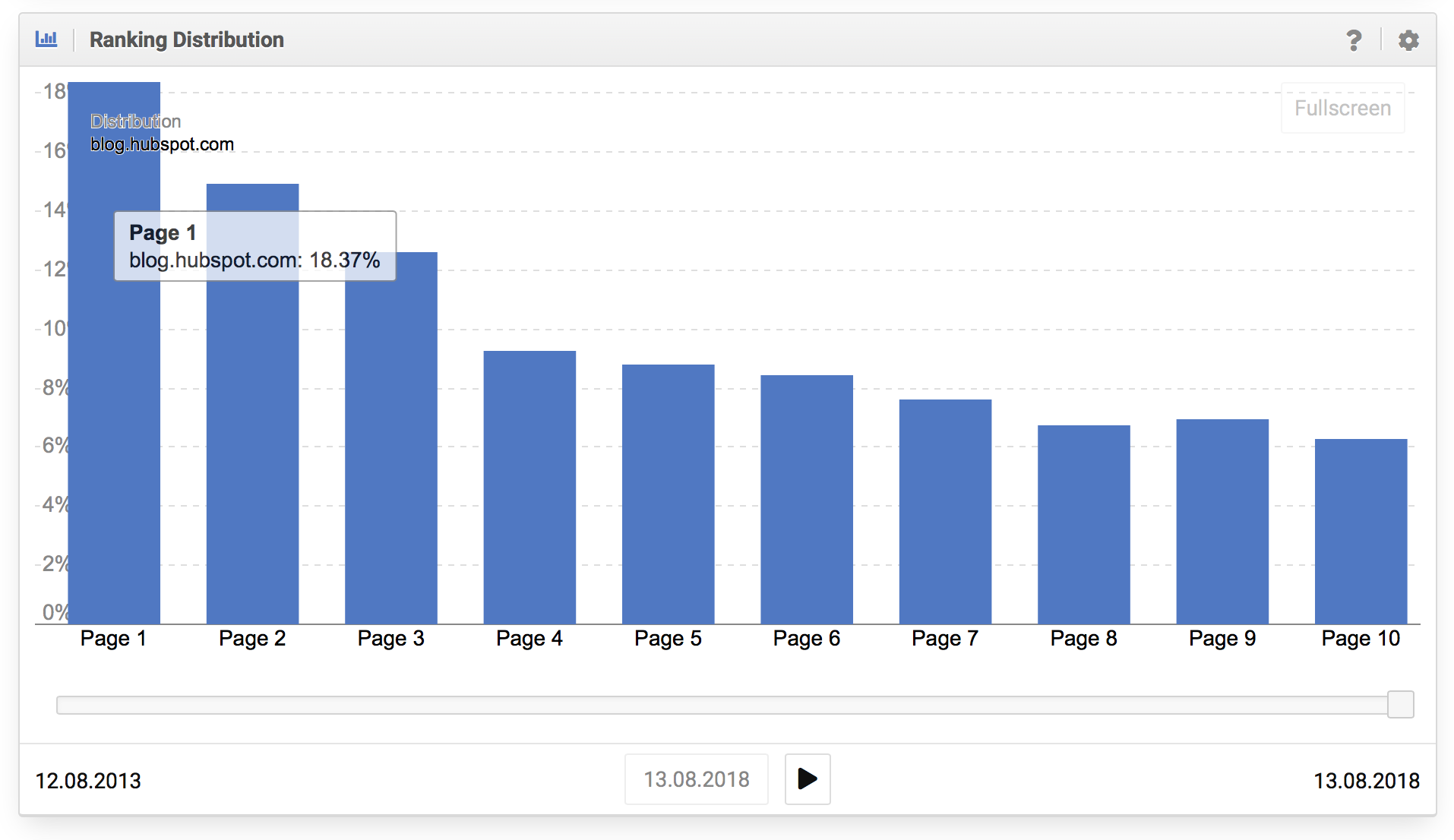
In case you don’t understand what I’m saying, the following chart shows you where the individual URLs are ranking inside Google and how many keywords they are individually generating. Take a look at the number of keywords ranking on Google’s first 10 organic search results (Top-10):
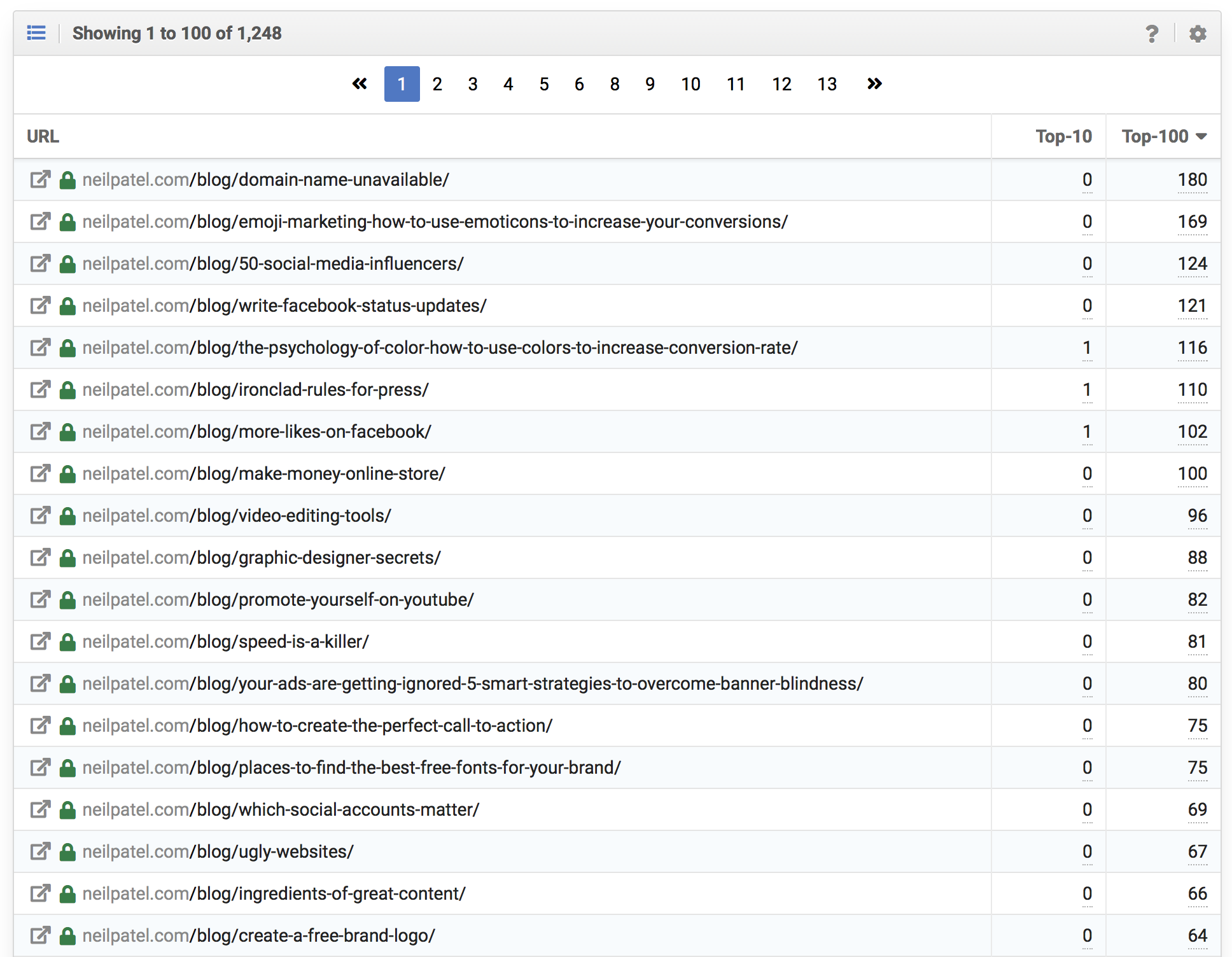
Social Media does not impact on Google rankings. SEO does
On the following chart you’ll find the best 20 URLs of Neil Patel on Social Media, it means, the URLs with the highest number of users interactions (shares, comments and likes):
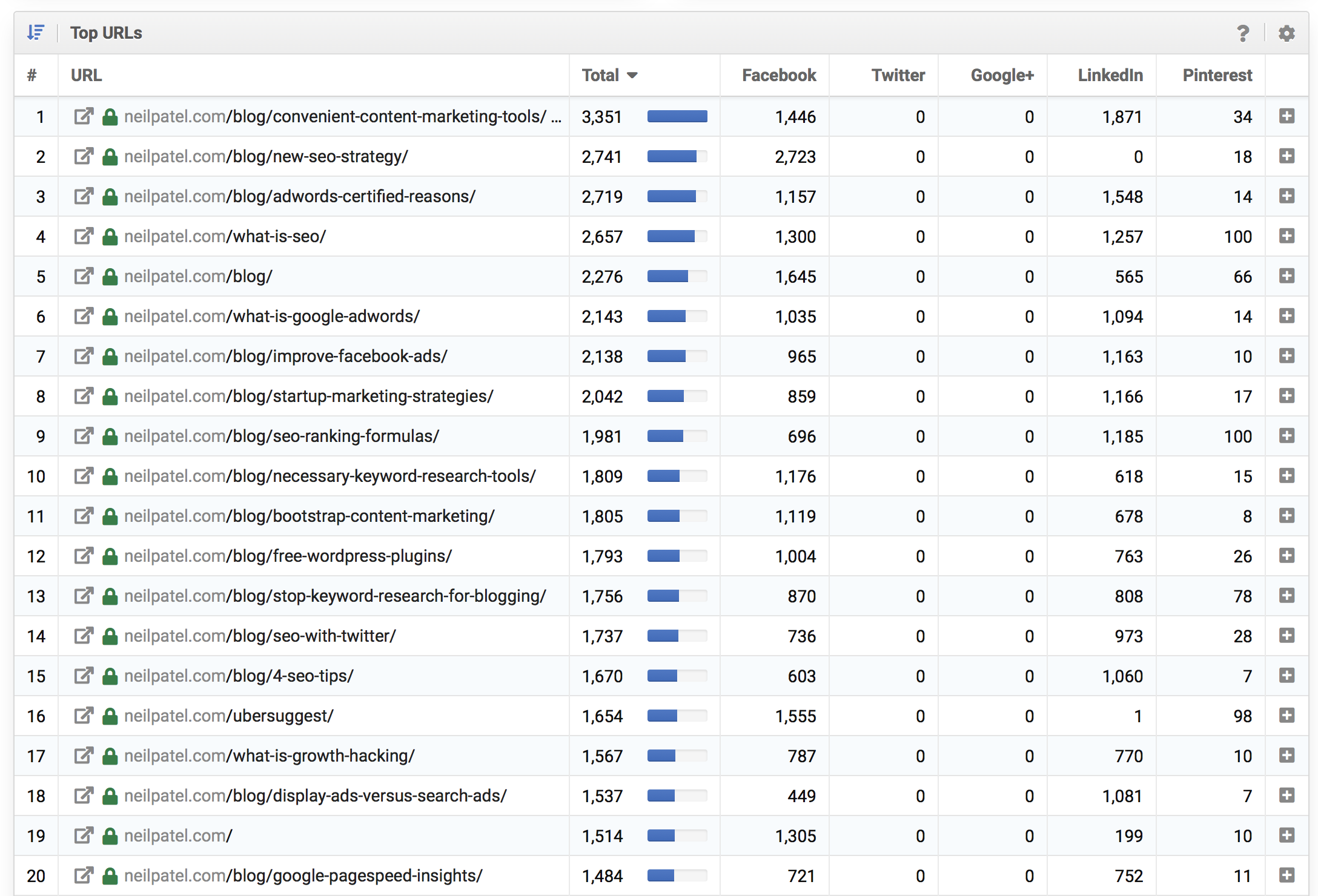
Neil’s content is really popular on Social Media but this success cannot be translated into SEO success. As an example, “neilpatel.com/blog/convenient-content-marketing-tools/” has 3,351 interactions on Facebook, LinkedIn and Pinterest wich is amazing. Now, this URL is ranking for 2 keywords only and both far way from Googles first page of results.

Blogs can be a good thing. For example, if you want to communicate with your audience – which is exactly what I’m doing here- and also for news, product launches to be shared on Social Media, as a PR channel, etc. But for SEO purposes you should consider other content formats.
Don’t optimise for Google but for Google’s users – SEO content does not exist
“There’s no minimum length, and there’s no minimum number of articles a day that you have to post, nor even a minimum number of pages on a website. In most cases, quality is better than quantity.“
John Müller, Webmaster Trend-Analyst, Google Schweiz
The Web is not a text corpus, the Web is a place where we find information and services. A picture, a video, an Excel spreadsheet is also content, and they will perform well on Google when they best match the search intention.
A useful product description like TripAdvisor does:
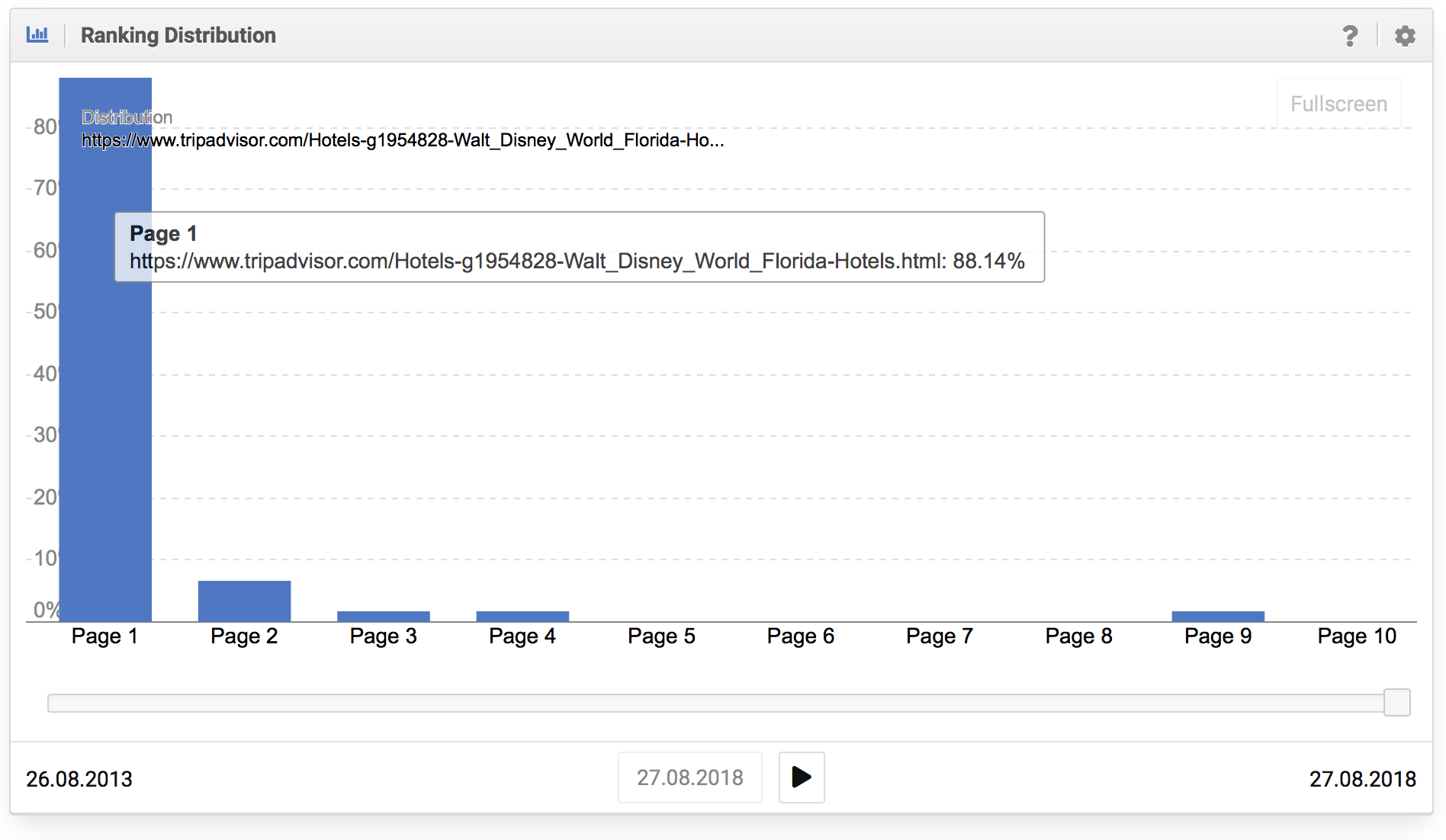
88% of the keywords for this URL are ranking on Google first page. Do you see a 300 words text average with a keyword density of 3%? A standard SEO content does not exist.
As SEO, you know that not everything what you are publishing in your Website is going to rank well on Google, but a good indicator for SEO performance would be when 30% or more of your content is ranking on Googles first page:
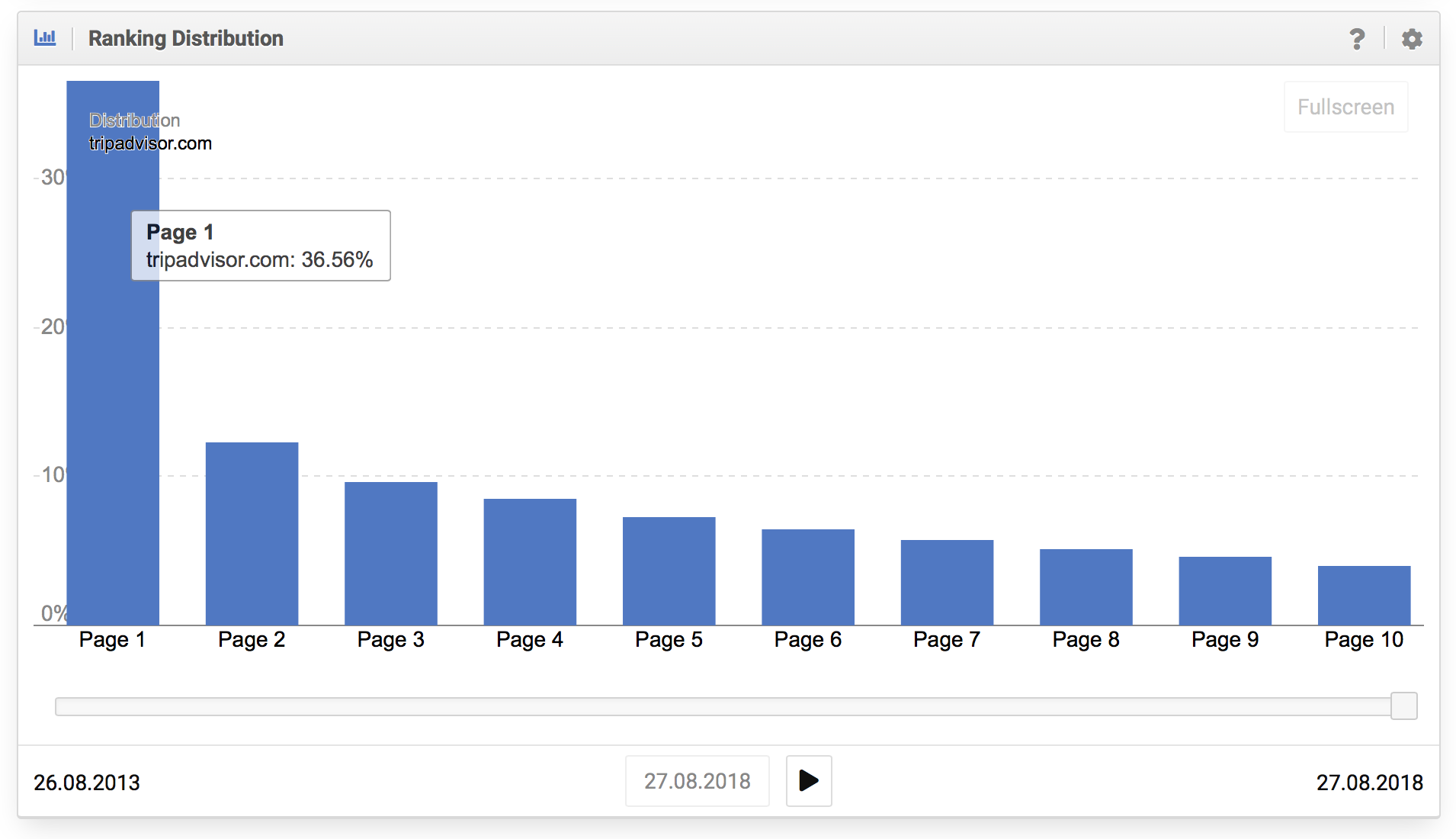
A customer obsessed company matching customers needs:
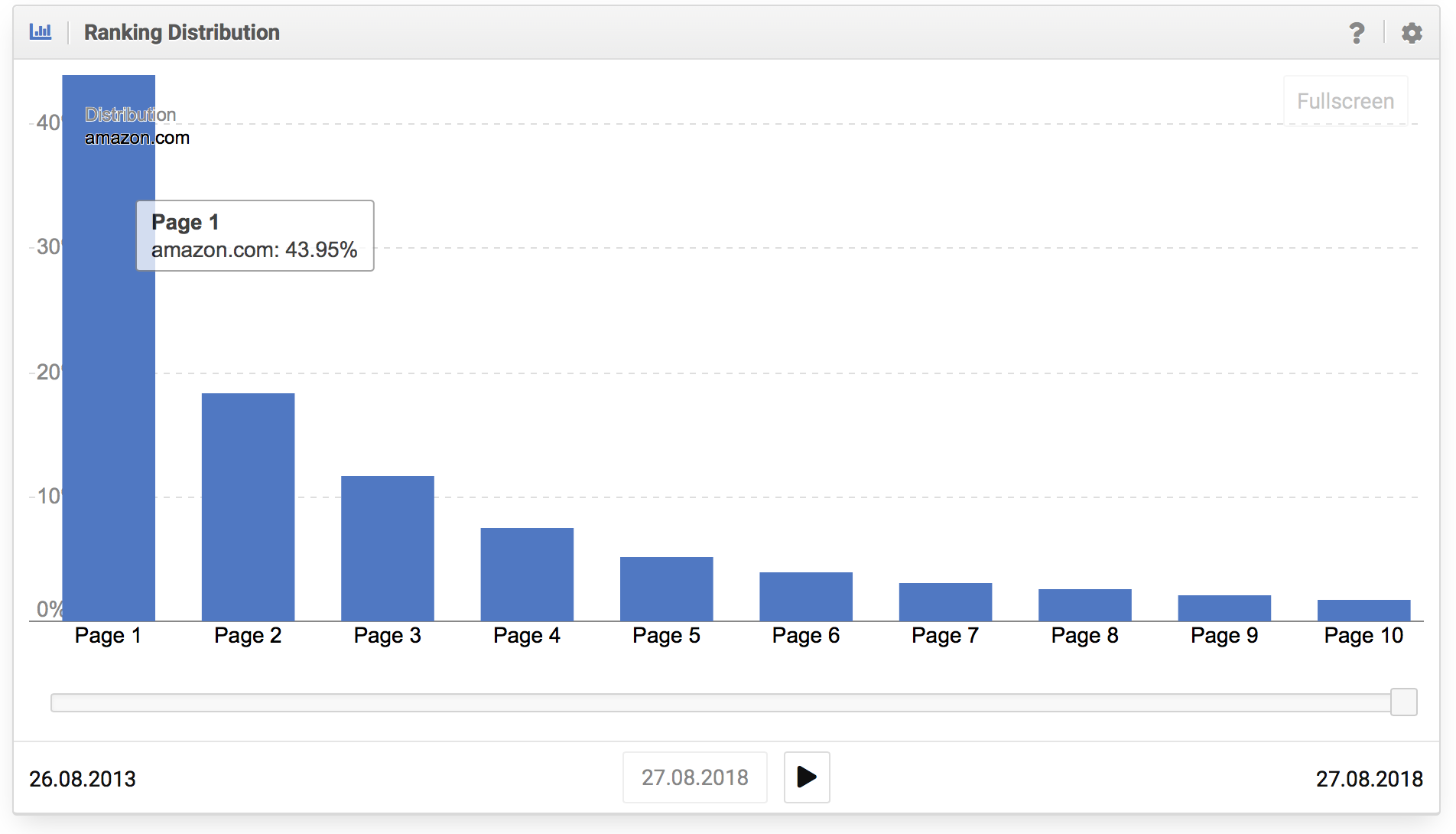
A simple list of the Top Rated Movies is also content which can perform pretty well on Google:
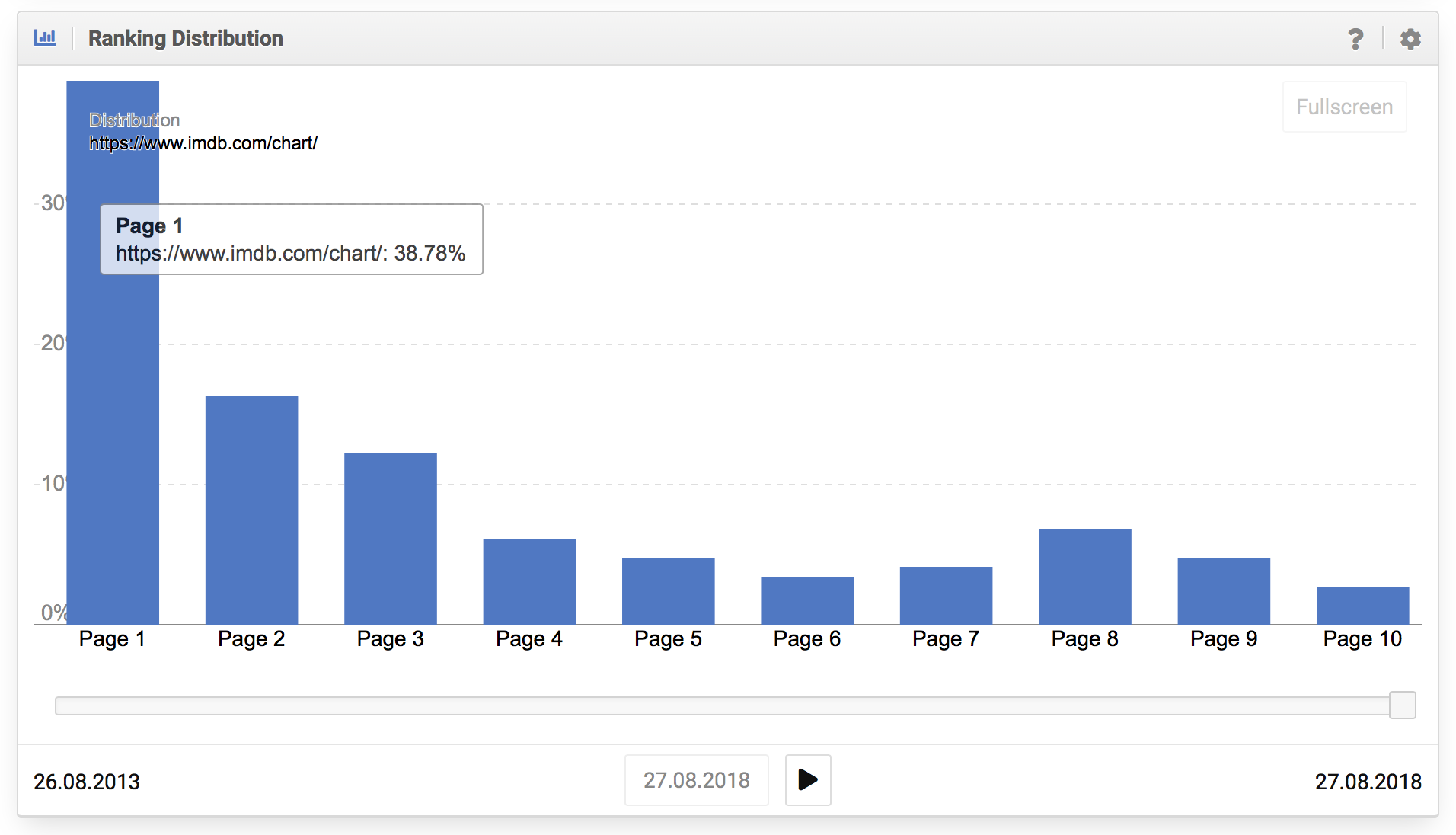
An exceptional example for high performance content is Wikipedia where 59,74% of all keywords are ranking on Google’s first page (60%!):
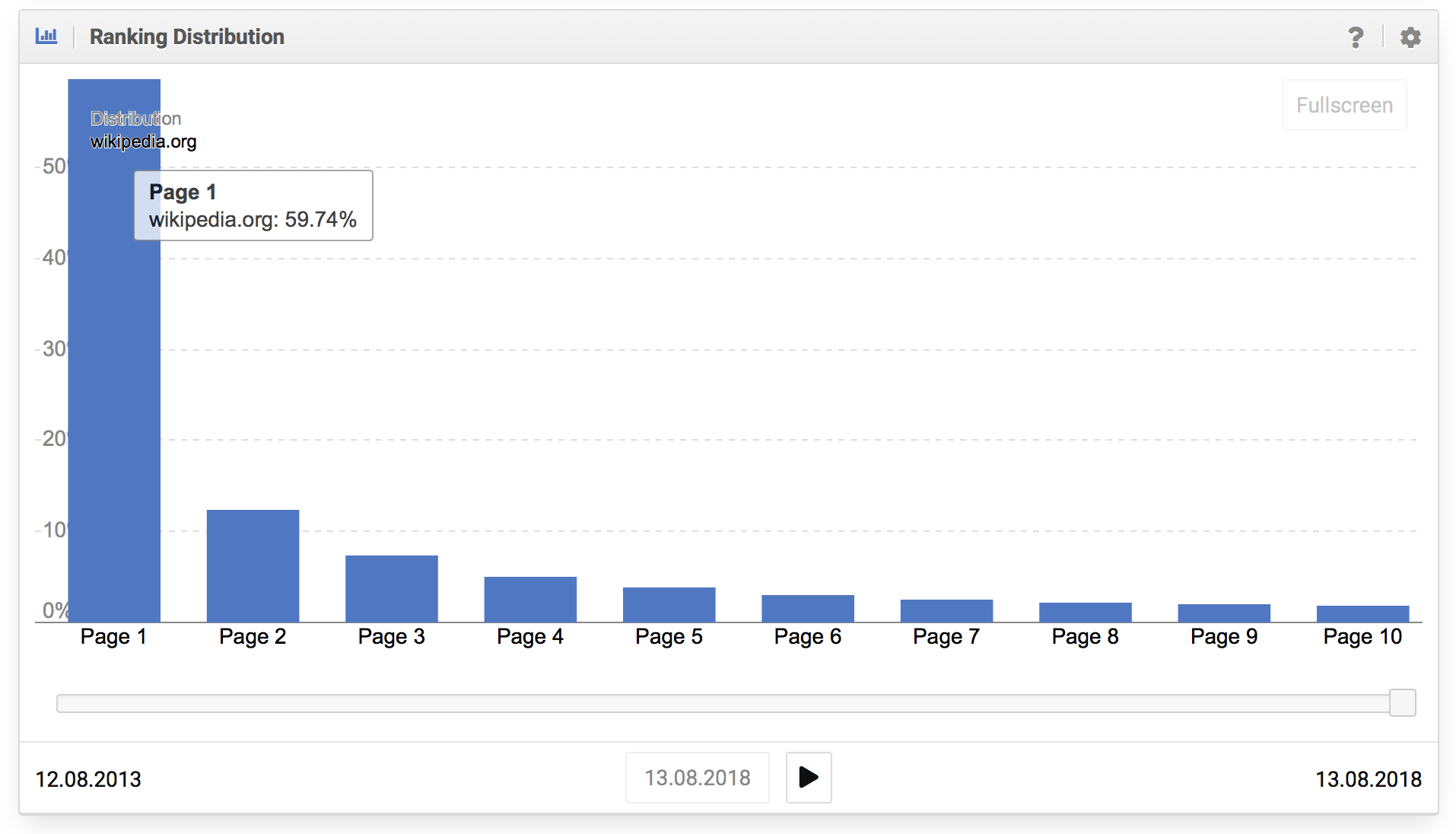
Following Neil Patels recommendations of blogging to perform on Google like Wikipedia does, you will need to write 34,159,536 long articles which it would takes you only 7,798 years. Have fun!
Donkeys vs Unicorns
Larry Kim explained that he published over 300 post at his last company’s blog and that just 8 of them performed well. He called them the “Unicorn Content“ that ranks high on Google and blows out key performance indicators:
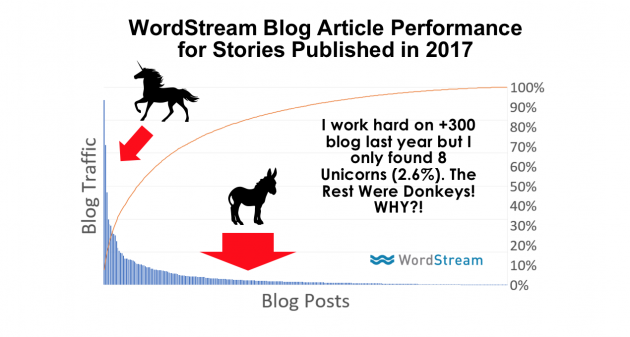
The fact is that Neil’s website has a good visibility index, so what are the Unicorns of this Domain? Here are some good examples of URLs with more than 35% of keywords ranking on Google’s first page results:
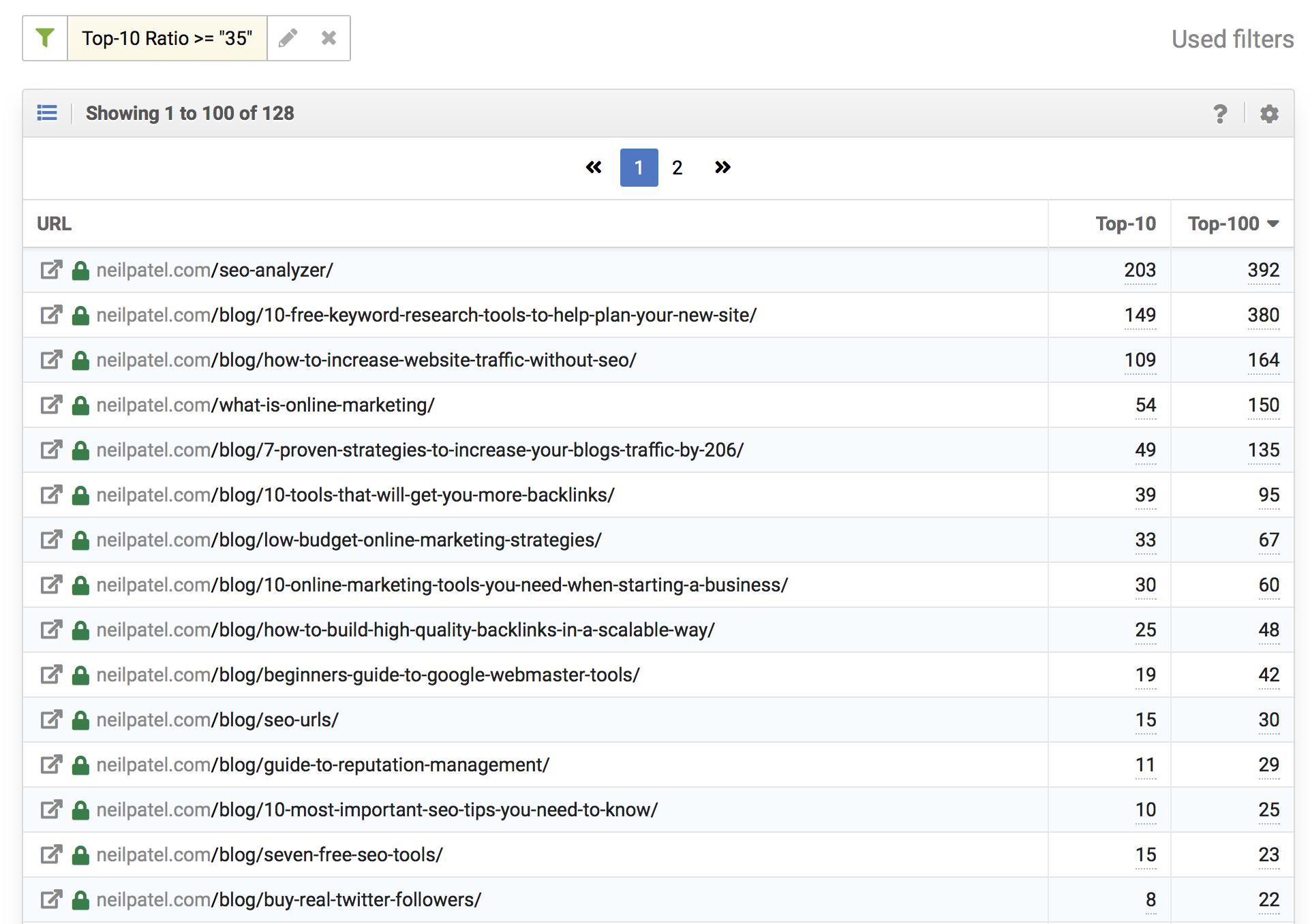
As the examples above show, from Wikipedia, Amazon, TripAdvisor and IMDB, the content is focused on the search intention, the content is timeless, the content is regularly being updated, it has a good UX, allows the user go deeper with internal links and it satisfies the user.
Where the quality of the content is concerned, we can’t comment. Taste is a personal thing.
I hope you enjoyed these thoughts.
